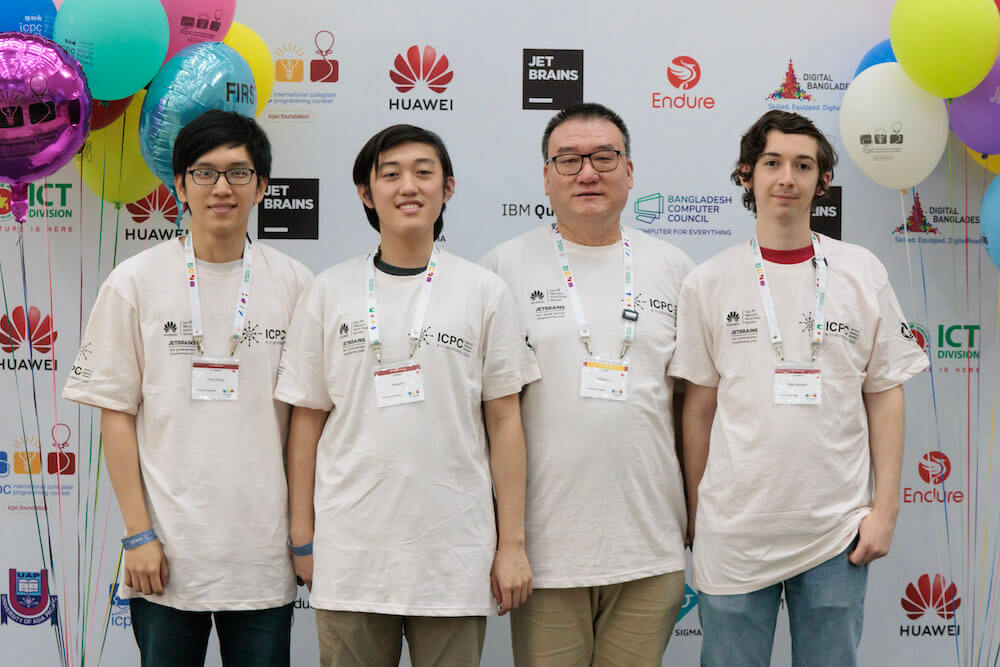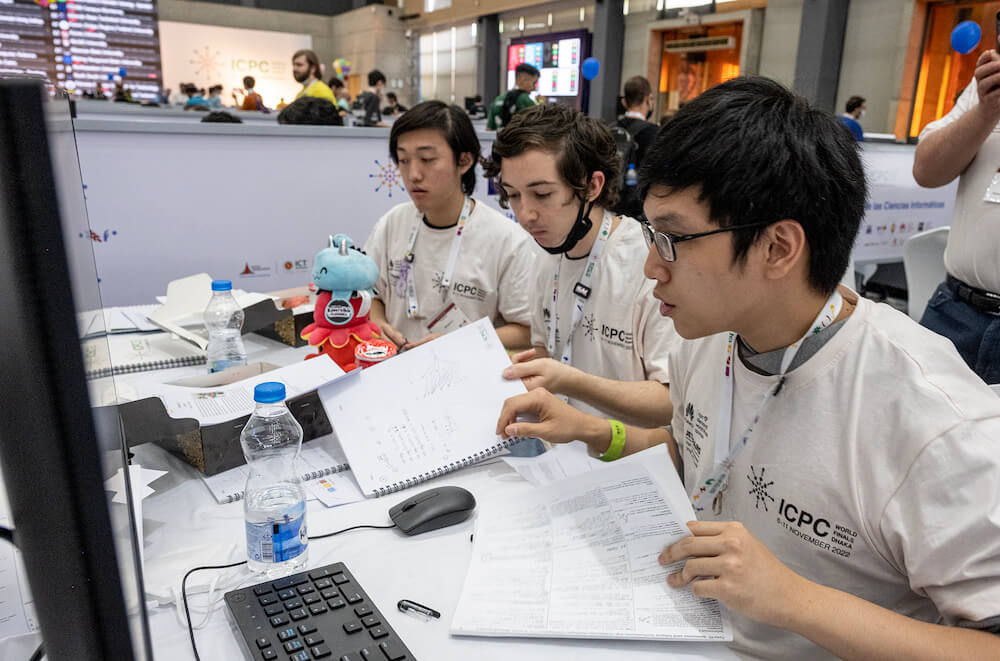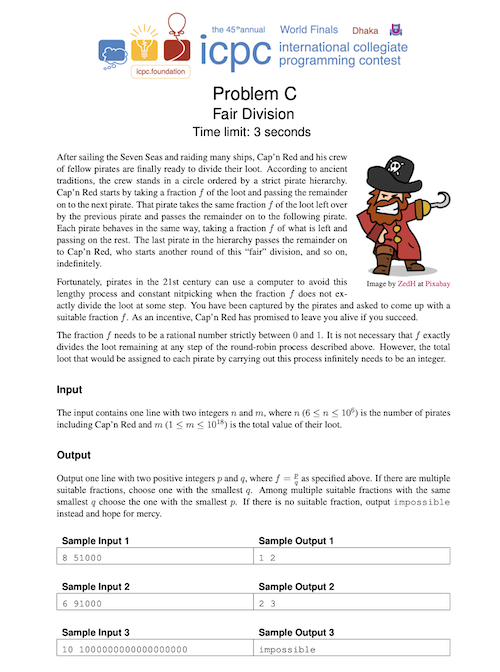Purdue’s algorithmic programming team finishes 20th at world finals
11-10-2022

Trung Dang, Richard Li, coach Professor Ninghui Li, and Riley Borgard at the International Collegiate Programming Competition (ICPC) World Final (2021) in Dhaka, Bangladesh
Three Purdue students proved their prowess at solving algorithmic problems and were rewarded with a 20th place finish at the world final competition. The students finished in 20th out of 132 teams in the International Collegiate Programming Competition (ICPC) World Final, held in Dhaka, Bangladesh, November 6-11, 2022.
Purdue ranked third among the 14 universities from the United States. MIT won World Champion overall and Carnegi Mellon University finished 7th overall (2nd best among US universities). See the final standings of all the teams at the world finals.
This Purdue team consisted of three computer science alums and students; Riley Borgard (BS '21), Trung Dang (BS '23), and Richard Li (BS/MS '23). Both Borgard and Li were competetiors in the 2020 ICPC World Final in Moscow, Russia.

"I am immensely proud to work with and coach our students as they prepare for the competition,” said coach, Professor Ninghui Li. He added, “Consistently our students dedicate time and effort to represent Purdue well."

The Purdue team solved seven questions correctly in the allotted time. Of all the problems, the team answered Problem C in the shortest period of time.
"The Purdue programming team continues to represent the university well and performs at the top of the competition,” said Coach Gustavo Rodriguez-Rivera. He added, “Competing at the World Finals puts Purdue among the top universities in this discipline. We are very proud of the work they completed. We are so proud of Riley, Trung, and Richard."
Alogrithmic Programming
The contest pits teams of three university students against 12 complex, real-world problems, with a grueling five-hour deadline. Huddled around a single computer, competitors race against the clock in a battle of logic, strategy, and mental endurance.
Teammates collaborate to rank the difficulty of the problems, deduce the requirements, design test beds, and build software systems that solve the problems under the intense scrutiny of expert judges. For a well-versed computer science student, some of the problems require precision only. Others require a knowledge and understanding of advanced algorithms. Still others are simply too hard to solve – except, of course, for the world’s brightest problem-solvers.
Judging is relentlessly strict. The students are given a problem statement – not a requirements document. They are given an example of test data, but they do not have access to the judges’ test data and acceptance criteria. Each incorrect solution submitted is assessed a time penalty. You don’t want to waste your customer’s time when you are dealing with the supreme court of computing. The team that solves the most problems in the fewest attempts in the least cumulative time is declared the winner.
More programming at Purdue
All three team members were part of the Purdue Computer Science student group, Competitive Programmers Union, which spurs growth and involvement in the ICPC and helps students develop skills needed to solve complex algorithms and data structures problems often presented in technical interviews.
The ICPC is the oldest, largest, and most prestigious algorithmic programming contest for college students around the world. Organized by ICPC Foundation, it is designed to foster creativity, teamwork, innovation, and the ability to perform under pressure. Through training and competition, teams of three, representing their university, challenge each other to raise the bar of excellence in inventing trustworthy software systems that solve a range of complex, real-world problems.
About the Department of Computer Science at Purdue University
Founded in 1962, the Department of Computer Science was created to be an innovative base of knowledge in the emerging field of computing as the first degree-awarding program in the United States. The department continues to advance the computer science industry through research. US News & Reports ranks Purdue CS #20 and #16 overall in graduate and undergraduate programs respectively, seventh in cybersecurity, 10th in software engineering, 13th in programming languages, data analytics, and computer systems, and 19th in artificial intelligence. Graduates of the program are able to solve complex and challenging problems in many fields. Our consistent success in an ever-changing landscape is reflected in the record undergraduate enrollment, increased faculty hiring, innovative research projects, and the creation of new academic programs. The increasing centrality of computer science in academic disciplines and society, and new research activities - centered around data science, artificial intelligence, programming languages, theoretical computer science, machine learning, and cybersecurity - are the future focus of the department. cs.purdue.edu
Writer: Emily Kinsell, emily@purdue.edu
Sources: Gustavo Rodriguez-Rivera, grr@purdue.edu
Ninghui Li, ninghui@purdue.edu